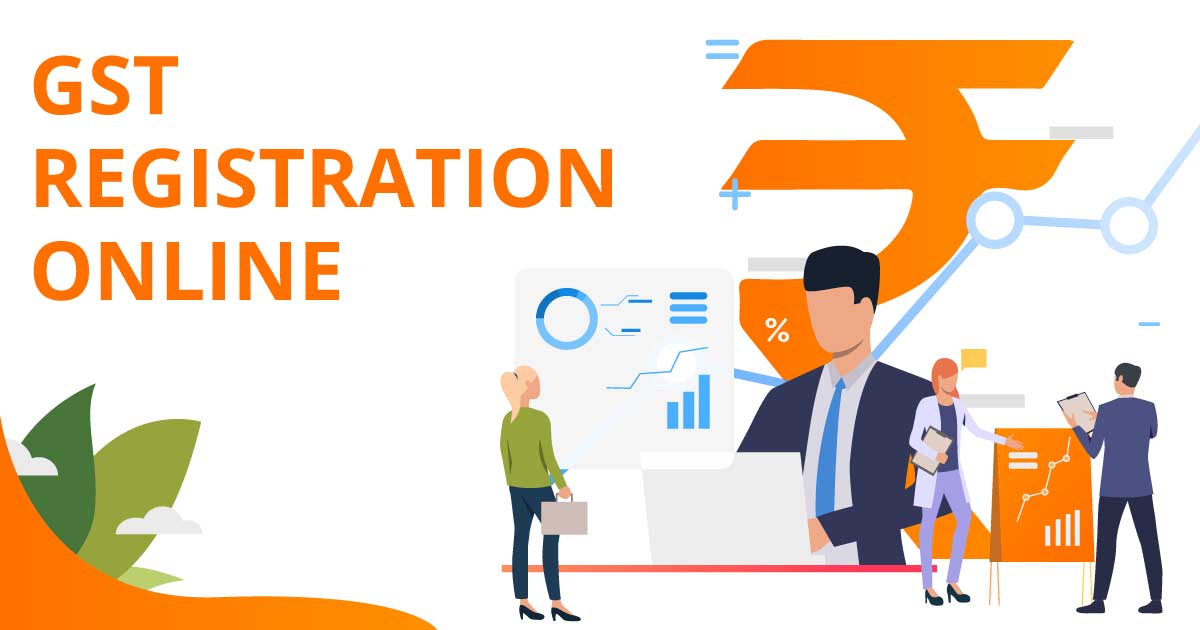From Beginning to Complete: The Ultimate Roadmap to GST Registration for Organizations Looking For Financial Stability
Navigating the intricacies of Goods and Provider Tax (GST) enrollment is an important action for companies pursuing financial stability. From recognizing the fundamental principles of GST to conforming with post-registration standards, the procedure can seem daunting at initial glance. Damaging down the roadmap into workable steps can streamline the enrollment journey for companies looking to improve their monetary standing. Let's discover the essential elements that comprise this ultimate roadmap and find just how each stage adds to laying a strong foundation for financial success.
Understanding GST Basics
Exploring the basic principles of Product and Services Tax Obligation (GST) is necessary for gaining an extensive understanding of its implications on organizations and the economic situation. GST is a value-added tax imposed on the majority of products and services for domestic consumption. It has actually replaced multiple indirect tax obligations that existed in the pre-GST age, simplifying the tax obligation structure and enhancing convenience of doing company in India. Under the GST system, both goods and solutions are strained at a certain rate, which is determined based on their category. If their annual turnover surpasses the threshold restriction established by the federal government, services are required to sign up for GST. Input Tax Credit Score (ITC) is a significant feature of GST, enabling organizations to assert credit score for taxes paid on inputs, reducing the general tax problem. Understanding the essentials of GST is vital for companies to abide by tax guidelines, handle their finances effectively, and add to the country's financial growth by joining a clear tax obligation system.
Qualification Requirements for Enrollment
To register for GST, services need to satisfy certain eligibility criteria established by the federal government. The key qualification requirement is that any company involved in the supply of items or services with a yearly aggregate turn over over the threshold restriction established by the authorities need to sign up for GST. Since the present guidelines, the threshold limitation for GST registration is an annual accumulation turnover of 40 lakhs for services operating within a state, except for special category states where the limitation is 20 lakhs. Additionally, certain businesses are called for to register for GST irrespective of their turnover, such as interstate providers, casual taxed individuals, and organizations reliant pay tax under the reverse cost system. It is important for organizations to completely evaluate their turn over and deal types to establish their GST registration obligations accurately. Failing to register for GST when eligible can lead to penalties and lawful consequences, making it crucial for services to stick to the defined eligibility criteria.
Records Required for Registration
Having satisfied the qualification standards for GST enrollment, companies have to now ensure they have the requisite papers in area to wage from this source the registration procedure successfully. The records required for GST enrollment commonly consist of proof of organization constitution, such as partnership deed, registration certification, or incorporation certificate for various kinds of businesses. In addition, organizations need to supply records developing the major business, such as a rental arrangement or power costs. PAN card of the service, as well as the identification and address proof of promoters/partners/directors, are vital for confirmation functions. Financial institution account declarations, together with terminated cheques or a duplicate of the financial institution passbook, are called for to confirm the monetary information given throughout enrollment. Organizations should have electronic signatures all set for the authorized signature. Guaranteeing all these records are arranged and readily offered will certainly quicken the GST enrollment process, allowing services to comply with tax obligation guidelines perfectly.
Step-by-Step Enrollment Refine
Next, all needed documents as per the list offered by the GST portal requirement to be posted. These files usually include evidence of company identity, registration and address evidence of marketers, economic declarations, and business entity's PAN card.

Post-Registration Compliance Guidelines

Final Thought
Finally, organizations looking for economic stability has to comprehend the essentials of GST, satisfy qualification requirements, gather required documents, adhere to the step-by-step enrollment process, and follow post-registration guidelines - Best GST registration services in Singapore. By sticking to these actions, companies can guarantee compliance with tax laws and preserve financial security in the future
In addition, specific businesses are called for to register for GST regardless of their turn over, such as interstate vendors, laid-back taxed persons, and businesses accountable to pay tax under the reverse charge device.Having fulfilled the eligibility standards for GST registration, businesses need to now ensure they have the requisite papers in place to proceed with the registration process efficiently. The documents required for GST registration normally consist of proof of business constitution, such as collaboration act, registration certification, or unification certification for different kinds of companies. Furthermore, businesses require to provide files developing the major area of business, such as a rental agreement or electricity expense.Beginning the GST registration procedure includes a collection of organized steps to ensure a certified and smooth registration for organizations.
Comments on “How to Locate the Best GST Registration Services in Singapore Quickly”